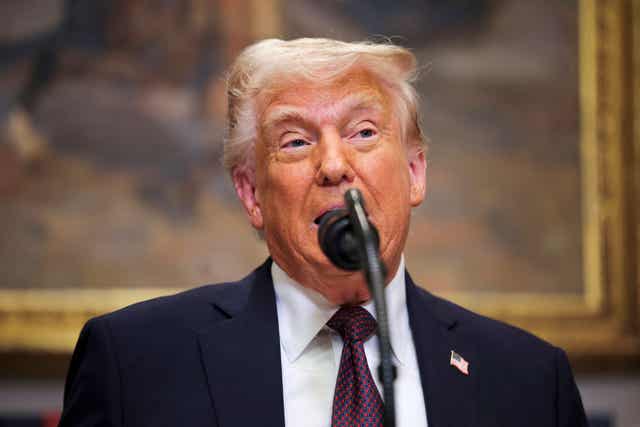
Natasha Devon 6pm - 9pm
25 March 2025, 11:54

One expert has said the perception of lowering taxes on big businesses while making government spending cuts would likely face criticism.
Reducing or removing a tax on big tech companies would have “little impact” on the economy, but will be a “tough balancing act” for the Chancellor to manage, one expert has said.
Media reports have suggested Britain could slash the digital services tax (DST) – a levy on big tech companies – in order to stave off American tariffs by appeasing US President Donald Trump.
But reports that the tax could be slashed or abolished come as Chancellor Rachel Reeves is expected to announce spending cuts for some Government departments in her spring statement on Wednesday, after having made cuts to welfare which have proved unpopular with Labour backbenchers.
Matthew Holman, an AI (artificial intelligence) lawyer at Cripps, and an expert in the tech and data space, said it was likely the Chancellor was trying to keep the peace between large tech firms who appear to have influence in the Trump White House and an “increasingly unsympathetic UK electorate”.
“The reason this is a tough balancing act for the Chancellor is simple: the domestic economy is weak and the national taxation and spending agenda appears all-consuming,” Mr Holman told the PA news agency.
“The OBR has forecast lower growth, and on Wednesday the Chancellor is reportedly going to cut £5 billion from welfare spending as well as announce reduction in Civil Service head count.
“It must, at least arguably, be the case that some of these cuts would not be needed if the UK continued to collect DST from US corporations?
“Why is the UK government apparently letting those US corporations off of tax due here and at the same time taking money from hardworking families?
“I should stress that is not my opinion, but it is the likely flak coming in the direction of the Chancellor from the opposition benches and further afield.
“However, should the Chancellor fail to appease the US administration, the already weak UK economy could face further shocks as a result of a fresh wave of tariffs from Washington which, as I understand it, are due to be announced on April 2.
“Which is the worse fate? That is the balancing act.”

Mr Holman said that removing or reducing the tax would have “very little” impact on the UK economy as the amount it brings in a year is just under 1% of the total tax levied in the UK, but added: “This is far more about perception than actual impact on taxation.”
The UK is keen to position itself as a key investment hub for US tech giants, in particular when it comes to artificial intelligence.
The Technology Secretary Peter Kyle recently visited the US to spread that message, but US tech firms and both the Trump and previous Biden administrations have not been supportive of the digital services tax and similar measures in EU countries.
They are seen as interim measures before the introduction of global tax reform for digital services that would remove perceived inequalities in digital services taxes which mean large multinational firms were making large revenues from countries such as the UK but not paying any tax on them.
But Mr Holman said ongoing US hostility to the reform proposals, which have been led by the OECD (Organisation for Economic Co-operation and Development) meant it was unlikely to see them introduced soon.
“The UK government website says that it plans to remove DSTs once the OECD reforms are passed. Unfortunately, those reforms have always been controversial and remain so, and are taking a long time to become law,” he said.
“They were not favourably viewed by the Biden administration and the last deadline for implementation – June 2024 – passed without resolving deadlock.
“In light of the Trump administration’s new approach to international taxes and tariffs, we should not expect to see the OECD reforms becoming law any time soon.
Both the Biden and Trump administrations were not supportive of the OECD proposals or any attempt to tax US digital service providers in non-US territories.
“The taxes are considered as unfairly discriminating against US corporations’ successes, and is further exacerbated by the perception that the EU and UK is taking the mickey,” Mr Holman said.
“The US tech companies have been lobbying US officials to tackle this issue and, in light of this weekend’s developments, it seems that the interim DST measures will be ditched – at least in the UK.
“The Trump administration’s ‘America First’ foreign and fiscal policies seem to be causing the UK government to think again.”
On Monday, the Prime Minister’s spokesman would not be drawn on whether slashing the digital services tax in exchange for a reprieve on American tariffs was part of Sir Keir’s discussions with Mr Trump, and insisted the Government would only strike a deal “in the national interest”.
Meanwhile, Ms Reeves said she does not “recognise” reports ministers may means test free school meals as part of the cost-cutting drive across Government and insisted the digital services tax was “hugely important”.